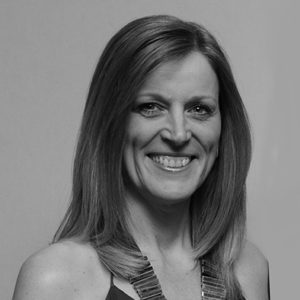Writing can be a thankless exercise. You pour your heart and soul into producing the perfect prose and, more often than not, nobody reads it. So why do so many people want to write?
It is, of course, a form of creativity, and most people do it because they enjoy it. Some are fortunate enough to make a comfortable living from it whilst others (the few whose names we instantly recognise) have accumulated considerable wealth from their written words.
Inevitably, perhaps, the majority associate writing with novels. But you don’t have to write a book to be a writer. Think of those who write articles for magazines or newspapers, and the people who write specifically for stage or television. There are those who write short stories or poetry, others who write essays or news reports, and those who reveal all in their autobiographies. In fact, the list is endless.
When embarking on your writing journey, the first thing to establish is exactly what you want to write. This may not be as obvious as it sounds. You may think you want to write a crime novel but when it comes down to it, you may not have the dedication required to complete a lengthy manuscript. It’s important to experiment with genres. How do you know you don’t want to write a children’s story if you’ve never actually tried? Similarly, you might think you’re not very good at poetry, but how do you know if no-one has ever read your poems?
One thing that can really help you to identify your preferred genre is to join a writers’ group. This will provide you with the opportunity to try different types of writing from poetry to short stories and from memoirs to novels. If you can’t find a writing group in your area, why not start one? A new year is always a good time to start something new and you’ll be surprised how many people will want to join. Receiving honest feedback from like-minded, supportive individuals can be invaluable.
If you don’t have access to a writing group and you don’t feel able to start your own, you may want to consider joining one remotely. If the pandemic has proved one thing, it’s that meetings and events can work just as well online as they do in person.
Writing groups will usually arrange a schedule of competitions. This is a great way to receive critique and to practice different styles of writing. Always make sure you do not exceed the maximum word count and try and come up with an original title. If there’s a theme, ensure your entry is relevant.
Beware entering competitions with an entry fee. Many writing competitions are advertised online and, if there’s a financial prize, it’s tempting to enter them all. However, do your research! If the entry fee seems high in relation to the prize money, it’s probably just a money-spinner and best avoided. Genuine, worthwhile competitions will have reputable adjudicators and will show details of previous winning entries.
It will help if you know what the adjudicator is looking for. If, for example, they are known for writing romance novels, it’s probably not a good idea to submit a horror-themed entry. You will simply be wasting time and money, so choose your competitions wisely.
You may also consider checking the website of your favourite author. They often include writing tips and advice on how to get started. You can sign-up to receive newsletters which may give details of creative writing courses and other useful events.
I have two main tips when advising new writers. Firstly, read as much as you can. The more you read, the more you learn. While you are enjoying the story, subconsciously you are observing things like sentence structure, grammar and dialogue. You will also quickly learn what type of material you prefer to read. Which leads to my second tip: write what you enjoy reading. If you enjoy reading fantasy novels, for example, then try your hand at writing one! If, on the other hand, you tend to favour shorter pieces, then concentrate on writing short stories (1,000 to 2,000 words) or flash fiction (up to 250 words). There is a market for everything!
Have you ever considered writing a memoir? People are fascinated by true stories and by the lives and experiences of others. I have read countless books written by survivors of the Holocaust. I’ve also read books by people who lived through the Greek Civil War. Books such as these are of significant historical interest. If you were in Kuwait at the time of the Iraqi invasion, you could write about how difficult and traumatic it was or how you coped with the fear and uncertainty. Thinking of more recent times, you may want to record what life was like for you during the COVID pandemic. Writing down your thoughts can be really cathartic as well as educational for future generations.
One of the most important things is to take your writing seriously. Give yourself time to experiment and rid yourself of distractions. Find your ideal writing space. It may be a quiet room at home or it could be the corner of your favourite coffee shop. Some people like listening to music, others prefer to write outdoors. It really is just a case of finding what works for you. Quite often, being surrounded by others can be inspiring. And don’t forget that the five senses (sight, sound, touch, smell, taste) can really bring your writing to life.
I know many writers who swear by ‘morning pages’. The concept was introduced by Julia Cameron in her book The Artist’s Way and recommends that you write three pages of longhand text using pen and paper (do NOT use technology) first thing every morning. It should be a stream of continuous writing. Just write what comes into your head – it doesn’t even have to make sense! It’s all about encouraging the flow from your brain to your hand and onto the page. At the very least it will stimulate your creativity.
Once you’ve made the decision to write, do so as often as you can. Practice really does make perfect so learn your craft and make sure you proof read the finished piece numerous times. You’d be amazed how easy it is to miss mistakes in your own writing!
The most important thing is to never give up. If you believe in yourself and in your writing then keep going! Keep submitting to magazines. Keep submitting to publishers or agents. Nothing beats seeing your name and print, and remember, J K Rowling was turned down by twelve different publishers before finding success with Harry Potter!
Whatever your writing aspirations, I hope you achieve them in 2022!








